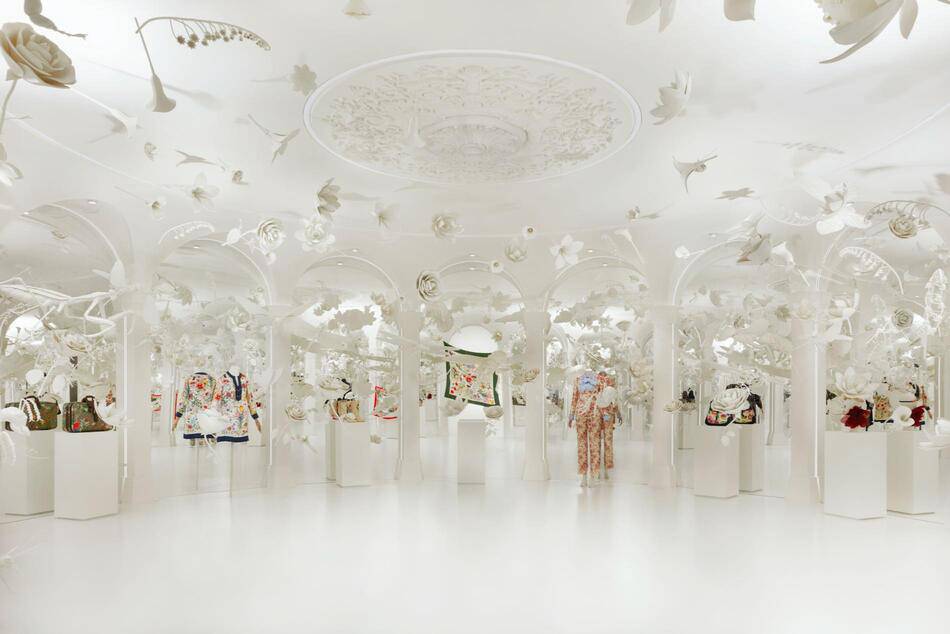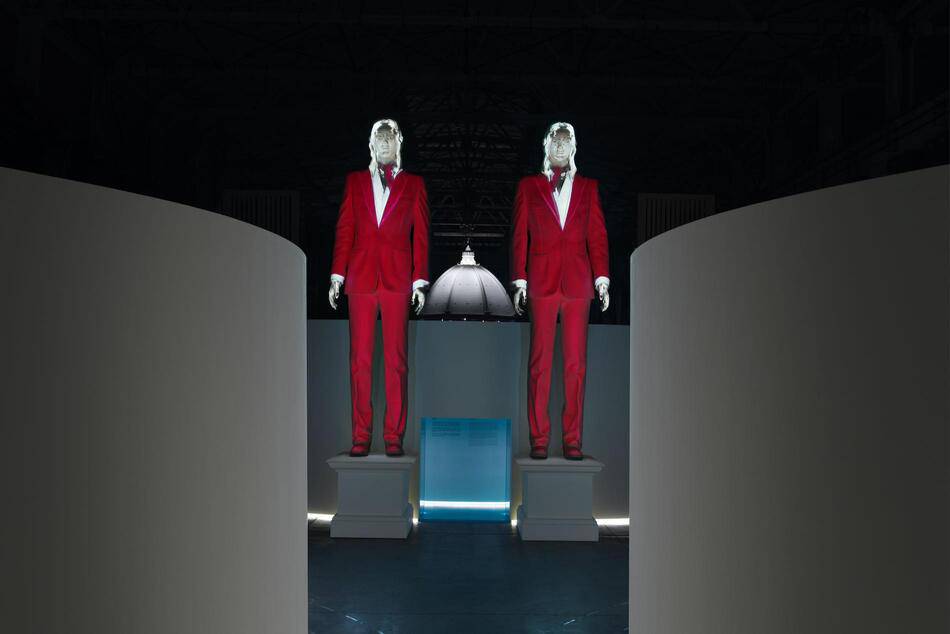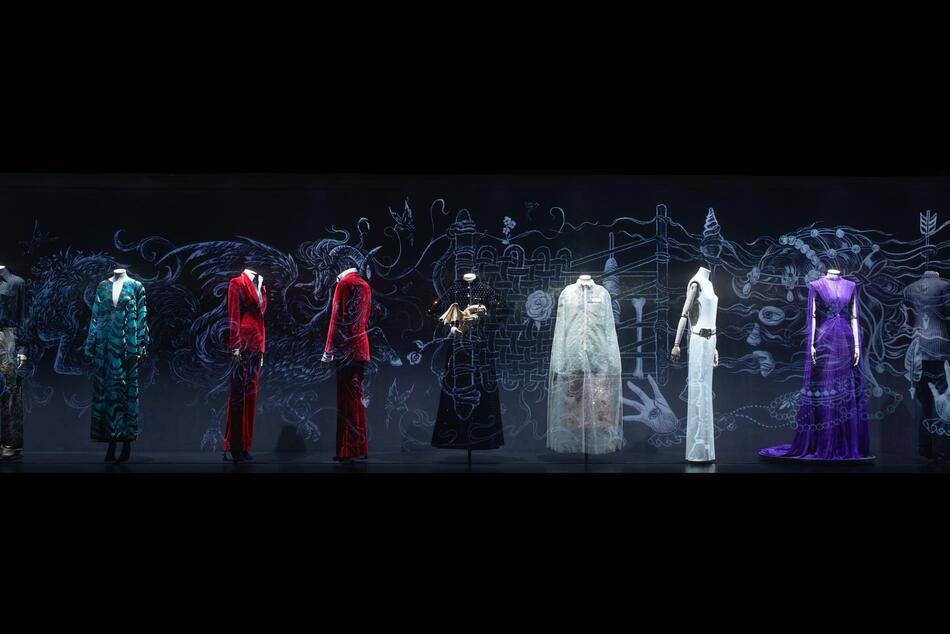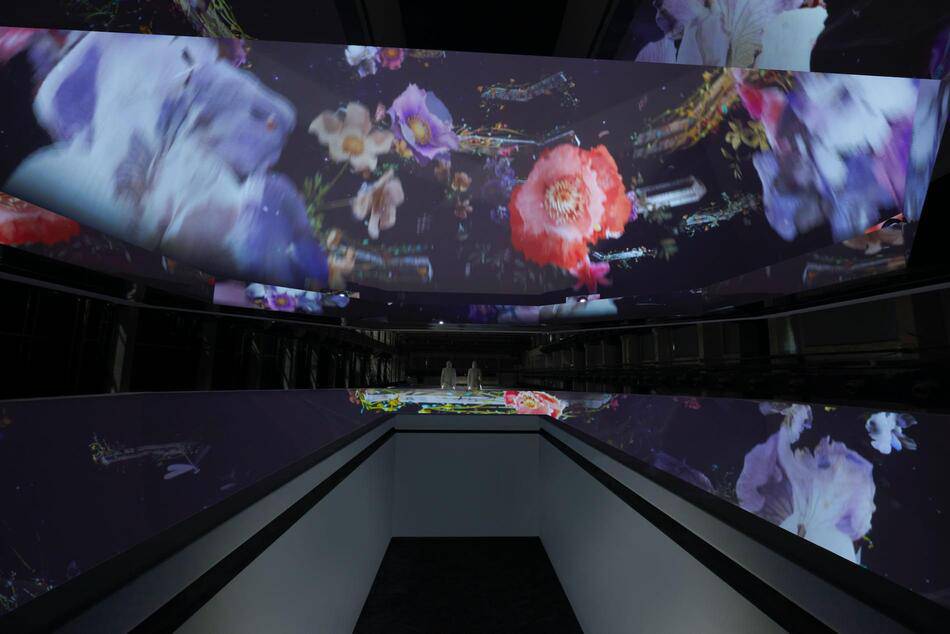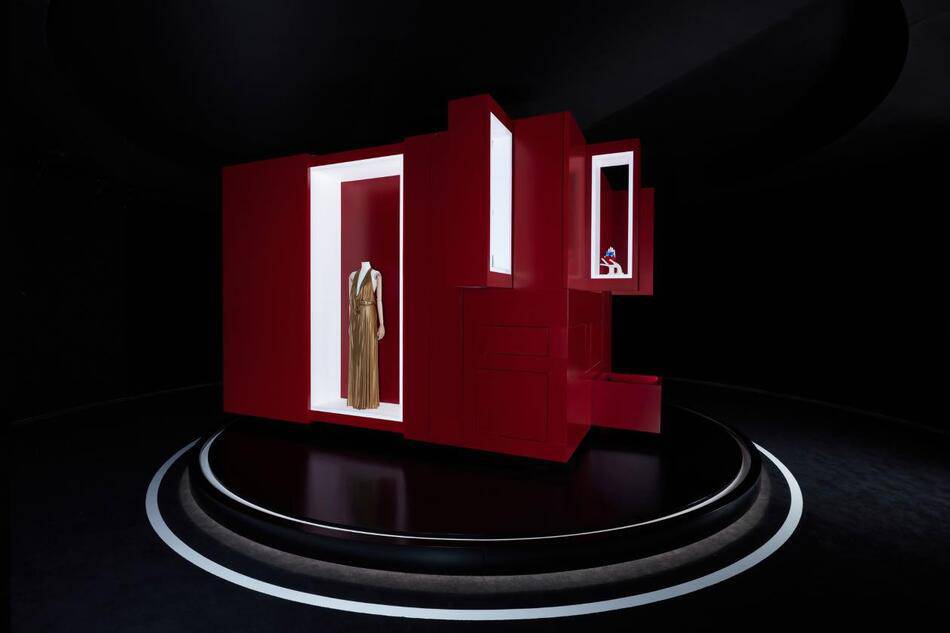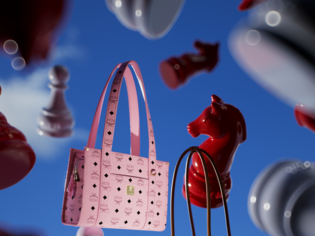Gucci Cosmos the cutting edge exhibition showcasing iconic designs from the brand's 102 year history, opens in Shanghai.
The exhibition explores how for over a century Gucci’s abiding codes and spirit have been brought to life in its most iconic designs, and how these era-defining classics have forever inspired and been reinterpreted by the House’s design visionaries. It also showcases how this progressive belief in the power of creativity, anchored in the finest Italian craftsmanship and tradition, has seen Gucci not only mirror the times, but also define them – in doing so, advancing society and its aesthetic tastes.
Conceived and designed by renowned British contemporary artist Es Devlin and curated by eminent Italian fashion theorist and critic Maria Luisa Frisa, this playful voyage through Gucci’s past, present and future is experienced across eight exhibition ‘worlds’ that draw together treasures – many previously unseen – from the Gucci Archive, a living and breathing repository and working hub for the House’s creative teams, housed in the 15th-century Palazzo Settimanni in Florence.
Each world traces a different aspect of Gucci, its unwavering principles since its foundation in 1921, and its ever-renewed inspirations and creativity – from the nascent ambitions of founder Guccio Gucci to the pioneering spirit of his sons Aldo and Rodolfo, and the wildly imaginative powers of more recent creative directors Tom Ford, Frida Giannini, and Alessandro Michele.

World 1: Portals
The first of Gucci Cosmos’s eight worlds, ‘Portals’, tells the story of the House’s founding father, Guccio Gucci and the continuing resonances for the House of his time as a young man working as a porter at The Savoy hotel in London. Entered through revolving doors – a nod to the hotel’s entrance – ‘Portals’ features three moving, circular carousels carrying examples of Gucci’s most exquisite luggage designs that tell intertwined creative stories across the decades.

World 2: Zoetrope
Gucci has long drawn inspiration from the equestrian world, a connection celebrated in the Gucci Cosmos ‘Zoetrope’ with its circular space punctuated with immersive large-format screens presenting evocative video footage accompanied by a rhythmic soundscape of galloping and a voiceover that recites horse-riding-inspired words to the beat. Multiple archival pieces demonstrate how the House’s equestrian icons – such as the Horsebit, invented by Aldo Gucci in 1953, and the iconic green-red-green Web stripe, inspired by the strap that holds a horse’s saddle in place – have fired the imagination over time.

World 3: Eden
‘Eden’, the third world in Gucci Cosmos, brings to life the tale of Flora, an exquisite and delicately naturalistic image of plants and fauna from 1966. Commissioned by Rodolfo Gucci from Italian artist and illustrator Vittorio Accornero de Testa for a silk scarf created for Princess Grace of Monaco, it became the leitmotif for Gucci’s 1981 ready-to-wear collection, presented in the Sala Bianca, in Florence’s Palazzo Pitti and later ignited the artistry of Tom Ford, Frida Giannini and Alessandro Michele.

World 4: TwoLeaving the vibrancy of ‘Eden’, visitors are faced with a pair of monumental 10-metre-tall white statues. Standing as if guarding the entrance to an ancient temple, they symbolize the House’s trail-blazing belief in unisex fashion and its ability to shift societal ideas and behaviour. Projected onto the statues’ ‘blank canvases’ in a loop are images of men’s and women’s suits from Gucci’s past and present.

World 5: Archivio
To enter the ‘Archivio’ world of Gucci Cosmos is to explore the origins of the House’s most iconic bags. In a breathtaking space with a mirrored ceiling that creates a feeling of infinity, a series of maze-like corridors reminiscent of the Gucci Archive in Florence are lined with a multitude of cabinets and drawers. Some open to reveal their contents, others closed or half-open or hidden behind frosted glass, as if holding back their creative secrets. The historic bags on display include five of those now considered modern, yet timeless classics: the Bamboo 1947, the Jackie 1961, the Horsebit 1955, the Gucci Diana, and the Dionysus.

World 6: Cabinet of Wonders
At the centre of the circular ‘Cabinet of Wonders’ world sits a rotating cabinet of curiosities. Three metres high, this stunning monolithic cube covered in deep red lacquer is filled with drawers and compartments that mechanically slide in and out – accompanied by a soundtrack of human breathing – to reveal a wildly eclectic collection of garments, accessories and curios.

World 7: Carousel
In ‘Carousel’, a parade of 32 mannequins wearing Gucci clothing from the 1970s to the present day glide smoothly by, like fashion models on an ever-moving catwalk. By arranging these full looks – each from a specific season – not by chronology but by colour and inspiration, ‘Carousel’ opens up entirely new connections, like a dance across time, and underlines the House’s ongoing creative conversation with its own heritage and modernity.

World 8: Duomo
While Gucci has continuously embodied and transfigured the Zeitgeist throughout its first century of boundless creativity – a reputation cemented over the decades as it became the House of choice for the international jet set and the most celebrated stars – it has always remained anchored in its spiritual and aesthetic home, the city of Florence. Gucci Cosmos fittingly culminates in ‘Duomo’, a spectacular homage to the city.


